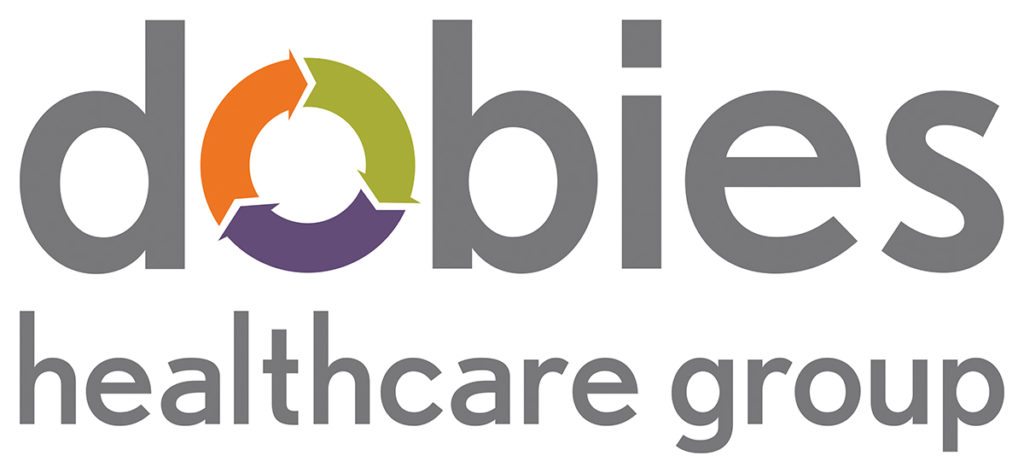Healthcare That Revolves Around You

Major shifts in healthcare are under way, and consumers are at the center of it all.
In the healthcare industry, change is constant, from the way care is delivered to the way it is financed. One emerging model of care in particular is starting to transform healthcare as we know it, and this much is certain: the future belongs to the consumer.
The new model directly engages consumers throughout their lives, encouraging and supporting healthy decisions at every opportunity. Whereas traditional healthcare — the kind delivered in hospitals and doctors’ offices — has historically been focused on treating illness or injury, the new care model is about providing personalized care with an emphasis on prevention and wellness. To be effective at prevention and helping people stay healthy, healthcare organizations are putting consumers at the center of their business strategies like never before — an approach the experts at Dobies Healthcare Group, a Kansas City-based healthcare marketing firm, and their colleagues call lifecare.
“Lifecare is a focus on keeping people healthy for life, rather than simply caring for them when they are not,” said Julie Amor, President and Chief Strategy Officer of Dobies Healthcare Group. “For this approach to be effective, providers and payers are extending their reach beyond treatment facilities, and it’s exciting to see new opportunities coming to life that engage consumers where they live, work and play.”
In such a system, every community organization is a potential partner in health, from schools to churches, libraries to grocery stores. The result: healthier individuals and healthier populations.
“To meet consumer demand, healthcare organizations must offer community-based services that make healthy living easier,” said Carol Dobies, Founder and CEO of Dobies Healthcare Group. “Envision a community that emphasizes access to healthy foods, fitness and health education, and makes those services so convenient that wellness becomes a natural state of being. That’s what many of our clients across the healthcare industry are aspiring to right now.”
Dobies and colleagues see the shift toward a consumer-centric model currently taking shape in four major areas of healthcare:
Health Insurance Plans
![]() Consumers are becoming more active participants in their healthcare decisions, starting with how they purchase health insurance. Health plan models are becoming more consumer-driven, allowing more options for consumers to shop around and choose the coverage that fits them best.
Consumers are becoming more active participants in their healthcare decisions, starting with how they purchase health insurance. Health plan models are becoming more consumer-driven, allowing more options for consumers to shop around and choose the coverage that fits them best.
While the majority of Americans continue to get their health insurance through their employers, even those group coverage plans offer consumer-oriented incentives. For example, employees who complete a health screening might pay a lower insurance premium or earn access to a better health plan by achieving a specific health outcome.
No matter the type of health coverage, consumers likely will continue to play a greater role in the financial responsibility of their healthcare.
Healthcare Providers
![]() In recent years, the healthcare industry has been shifting from a fee-for-service model, which compensates providers based on the volume of treatments they provide, to one that compensates them based on patient health outcomes. Under this value-based arrangement, providers are now engaging with patients on a deeper level to help them manage chronic and acute conditions to ensure the best possible outcomes.
In recent years, the healthcare industry has been shifting from a fee-for-service model, which compensates providers based on the volume of treatments they provide, to one that compensates them based on patient health outcomes. Under this value-based arrangement, providers are now engaging with patients on a deeper level to help them manage chronic and acute conditions to ensure the best possible outcomes.
Access points are also evolving to accommodate consumer demand. Consumers are increasingly turning to nontraditional sources for primary care, including retail clinics in pharmacies and grocery stores. Technological services such as telehealth and digital health coaching provide additional means for consumers to connect when and where it’s convenient.
Health Information
![]() Consumers have greater access to health information than ever before. Almost every health condition has a variety of websites, support groups and tools to help consumers become more informed, engaged and proactive in managing their health.
Consumers have greater access to health information than ever before. Almost every health condition has a variety of websites, support groups and tools to help consumers become more informed, engaged and proactive in managing their health.
But not everyone looks to the same sources for information. Millennials typically expect the industry to be more relevant and accommodating of their preferences for virtually accessing and consuming information, while baby boomers put more trust in the direct relationships they have with their doctors. Healthcare organizations that recognize this distinction are finding ways to engage consumers by customizing the delivery of information to align with each generation’s expectations.
Wellness Opportunities
![]() The incredible growth of wellness products and services shows no signs of slowing down. From healthy eating and weight loss, to workplace wellness programs, to tech such as mobile apps, wearable fitness trackers and other health-related smart devices, there is plenty of proof that consumers are hungry for support in meeting their personal health and wellness goals. Experts predict the trend to continue as providers and companies look for more ways to interact with consumers.
The incredible growth of wellness products and services shows no signs of slowing down. From healthy eating and weight loss, to workplace wellness programs, to tech such as mobile apps, wearable fitness trackers and other health-related smart devices, there is plenty of proof that consumers are hungry for support in meeting their personal health and wellness goals. Experts predict the trend to continue as providers and companies look for more ways to interact with consumers.
As healthcare continues along its current evolutionary track, engaging consumers throughout their lives will remain a priority for healthcare providers and companies. Consumers can look forward to more tools to support health, wellness, and greater engagement and accountability in their own health decisions.





